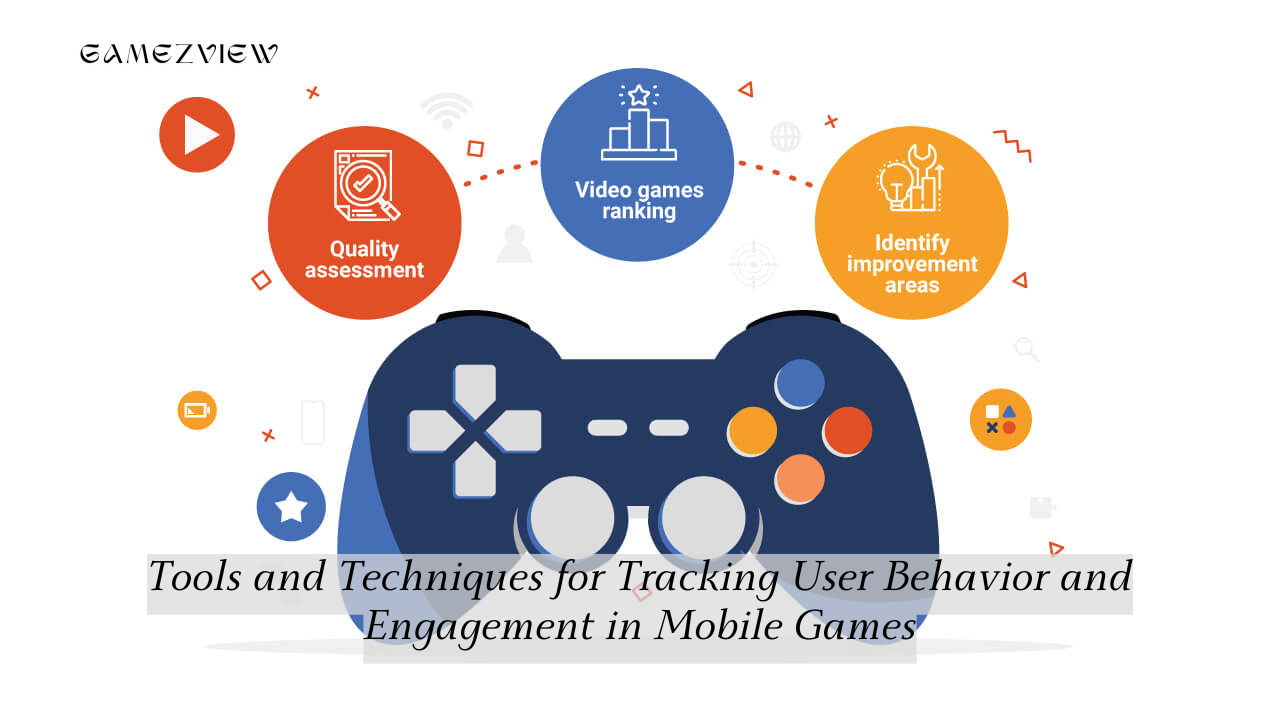Gaming has evolved from a niche hobby into a global phenomenon that captivates millions of players of all ages. Whether you’re diving into the vibrant world of video games for the first time or returning after a long hiatus, the vast array of genres, platforms, and gaming communities can be overwhelming. This guide aims to provide essential tips to help you navigate the gaming landscape, improve your skills, and enjoy your gaming experience to the fullest.
1. Choosing the Right Platform
The first step in your gaming journey is selecting the platform that best suits your needs. There are several options available, each with its unique advantages:
- PC Gaming: Known for its flexibility and superior graphics, PC Gaming offers a wide range of games, including both AAA titles and indie games. A good gaming PC can be expensive but allows for upgrades and customization.
- Console Gaming: Consoles like the PlayStation, Xbox, and Nintendo Switch provide a more streamlined experience. They are user-friendly, and most games are optimized for these platforms. Consoles are ideal if you prefer a straightforward setup without worrying about hardware compatibility.
- Mobile Gaming: If you prefer gaming on the go, mobile devices offer a wide variety of games. While mobile games tend to be more casual, there are increasingly complex titles available. Mobile gaming is perfect for those who want to play anywhere and anytime.
- Cloud Gaming: Services like Google Stadia, Xbox Cloud Gaming, and NVIDIA GeForce Now allow you to play high-quality games on various devices without the need for powerful hardware. This is a great option if you want to game on multiple platforms without investing in expensive equipment.
Maximizing Your Gaming Experience: The Crucial Role of Internet Speed and Connection
2. Understanding Game Genres
Games come in various genres, each offering a different experience. Understanding these genres can help you choose games that align with your interests:
- Action: Fast-paced games that focus on combat and physical challenges. Examples include first-person shooters (FPS) like Call of Duty and action-adventure games like Assassin’s Creed.
- Role-Playing Games (RPGs): These games allow you to take on the role of a character in a fictional world. You’ll often make decisions that affect the story and character development. Popular RPGs include The Witcher 3 and Final Fantasy.
- Strategy: Games that require careful planning and resource management. Strategy games can be turn-based, like Civilization VI, or real-time, like StarCraft II.
- Sports: Simulate real-life sports such as football, basketball, or racing. Popular titles include FIFA, NBA 2K, and Forza Horizon.
- Puzzle: These games challenge your problem-solving skills and often include logic puzzles and strategy elements. Examples include Tetris and Portal.
- Simulation: These games mimic real-life activities. Examples include The Sims for life simulation and SimCity for city-building.
- Multiplayer Online Battle Arena (MOBA): A sub-genre of strategy games where players control a single character in a team-based battle. Popular MOBAs include League of Legends and Dota 2.

3. Starting with the Right Games
As a beginner, it’s essential to start with games that are beginner-friendly. Here are some recommendations:
- For Action Lovers: Super Mario Odyssey (Nintendo Switch) – A platformer with accessible controls and a fun, engaging world.
- For RPG Fans: The Legend of Zelda: Breath of the Wild (Nintendo Switch) is an open-world game that offers a perfect blend of exploration, puzzles, and combat.
- For Strategy Enthusiasts: Age of Empires II: Definitive Edition (PC) – A classic real-time strategy game with tutorials and campaigns that ease you into the genre.
- For Puzzle Solvers: Portal 2 (PC, Console) – A first-person puzzle game with a unique mechanic and engaging story.
- For Social Gamers: Animal Crossing: New Horizons (Nintendo Switch) – A life simulation game that is easy to pick up and encourages creativity and social interaction.
4. Setting Up Your Gaming Environment
A comfortable gaming environment is crucial for an enjoyable experience. Here’s what you need to consider:
- Ergonomics: Ensure that your gaming chair and desk are set up to support good posture. Sitting for long periods can strain your back and neck, so invest in a comfortable chair and set your monitor at eye level.
- Sound: Good sound quality enhances your gaming experience. Consider investing in a quality headset or speakers. A headset with a microphone is especially useful for communicating in multiplayer games.
- Lighting: Proper lighting reduces eye strain. Consider using bias lighting behind your monitor or gaming area to reduce glare and improve contrast.
- Internet Connection: A stable internet connection is vital for online gaming. A wired Ethernet connection is preferable, but if you’re using Wi-Fi, make sure your router is up-to-date and positioned close to your gaming area.
5. Learning the Basics
Every game has its mechanics, controls, and rules. Here are some general tips to help you get started:
- Tutorials: Most games include tutorials that introduce the basic controls and mechanics. Don’t skip them, even if they seem simple. They often provide essential information.
- Practice: Like any skill, gaming requires practice. Don’t be discouraged if you’re not good at a game immediately. Spend time getting used to the controls and mechanics.
- Use In-Game Help: Many games have help menus or tips that you can access if you get stuck. These can be invaluable, especially in more complex games.
- Watch Playthroughs: If you’re struggling with a particular game, watching playthroughs or tutorials on YouTube can help you understand how to approach challenges.
6. Improving Your Skills
Once you’re comfortable with the basics, you may want to start improving your skills. Here are some tips:
- Start on Easy Mode: Many games offer difficulty levels. Starting in an easier setting can help you learn the game without becoming frustrated.
- Focus on One Game at a Time: It can be tempting to jump between different games, but focusing on one game at a time allows you to master its mechanics and strategies.
- Learn from Your Mistakes: Pay attention to what went wrong in a game and think about how you can improve. Whether it’s timing your attacks better or improving your resource management, learning from your mistakes is key to improving.
- Join Online Communities: Many games have online communities where players share tips, strategies, and experiences. Forums like Reddit, Discord servers, and official game communities can be great resources.
- Play with Others: Multiplayer games can be a great way to improve your skills. Playing with or against others can challenge you to think strategically and react quickly.

7. Staying Safe and Healthy While Gaming
Gaming can be a great way to relax and have fun, but it’s important to stay mindful of your health:
- Take Breaks: Sitting for long periods can be harmful to your health. Take regular breaks to stretch, walk around, and rest your eyes.
- Stay Hydrated: It’s easy to forget to drink water while gaming, but staying hydrated is essential for maintaining focus and energy levels.
- Mind Your Mental Health: Gaming should be fun, not stressful. If you find yourself getting frustrated or angry, take a break. Remember that it’s okay to lose or make mistakes.
- Beware of Online Interactions: If you’re playing online games, be cautious about sharing personal information. Use strong passwords, enable two-factor authentication, and report any inappropriate behaviour or harassment.
8. Exploring Single-Player vs. Multiplayer Games
Gaming can be a solitary or social activity, depending on the type of game you choose:
- Single-Player Games: These games focus on a narrative-driven experience where you play alone. They often have rich stories and immersive worlds. Examples include The Witcher 3, Red Dead Redemption 2, and The Last of Us.
- Multiplayer Games: These games allow you to play with or against other players. Multiplayer games can be cooperative (working together to achieve a goal) or competitive (fighting against each other to win). Overwatch, Call of Duty: Warzone, and Among Us are popular multiplayer games.
- Choosing What Suits You: Decide what kind of experience you’re looking for. If you enjoy storytelling and character development, single-player games might be more appealing. If you like social interaction and competition, multiplayer games could be the way to go.
Mastering Game Guides and Walkthroughs: A Comprehensive Approach
9. Investing in Games and Managing Your Budget
Gaming can be an expensive hobby, but with some planning, you can manage your budget effectively:
- Start with Free-to-Play Games: Many great games are free-to-play, especially on mobile and PC. Titles like Fortnite, Apex Legends, and League of Legends offer high-quality experiences without an upfront cost.
- Look for Sales and Discounts: Gaming platforms regularly have sales where you can purchase games at a reduced price. Steam, PlayStation Store, and Xbox Live frequently offer discounts on popular titles.
- Consider Subscription Services: Services like Xbox Game Pass, PlayStation Plus, and EA Play give you access to a large library of games for a monthly fee. This can be a cost-effective way to play a variety of games without buying them individually.
- Avoid Impulse Purchases: It’s easy to get caught up in the excitement of a new release, but take your time to research games before buying. Read reviews, watch gameplay videos, and consider waiting for sales.
- Mind In-Game Purchases: Many games offer in-game purchases for cosmetic items, expansions, or other content. Be careful with these microtransactions, as they can add up quickly.
10. Exploring Esports and Competitive Gaming
As you become more skilled, you might develop an interest in competitive gaming or esports:
- Understanding Esports: Esports are organized, competitive video gaming events that attract players and spectators from around the world. Games like League of Legends, Counter-Strike: Global Offensive and Overwatch are popular in the esports scene.
- Joining the Competitive Scene: If you enjoy competitive play, consider joining tournaments or leagues. Many games offer ranked modes where you can test your skills against others. Start by participating in smaller, local events to gain experience.
- Watching Esports: Watching professional esports can be both entertaining and educational. You can learn new strategies, understand the meta (most effective tactics available), and see how top players approach the game.
- Staying Healthy: Competitive gaming can be intense, so it’s important to maintain a healthy lifestyle. Exercise regularly, eat well, and make sure you’re getting enough sleep. Mental health is also crucial; don’t let the pressure of competition negatively affect your well-being.

11. Finding Balance and Enjoying the Journey
Finally, remember that gaming is ultimately about having fun. Here’s how to keep your experience enjoyable:
- Don’t Compare Yourself to Others: Everyone progresses at their own pace. Focus on your improvement and enjoyment rather than comparing yourself to more experienced players.
- Try Different Games: Don’t get stuck playing the same game. Explore different genres and titles to keep your gaming experience fresh and exciting.
- Enjoy the Social Aspect: Gaming can be a great way to connect with friends or make new ones. Enjoy social interactions, whether it’s through cooperative play or friendly competition.
- Stay Open to New Experiences: Gaming is constantly evolving, with new technologies and trends emerging all the time. Stay curious and open to trying new games, platforms, and experiences.
- Remember to Have Fun: While it’s great to improve and achieve goals, the most important aspect of gaming is enjoyment. If you’re not having fun, it might be time to take a break or try something different.
Starting your journey into gaming can be both exciting and a little daunting, but with these tips, you’ll be well-equipped to navigate this vast and diverse world. Whether you’re aiming to master competitive multiplayer games, explore epic single-player adventures, or simply relax with a casual game, the key is to find what you enjoy and make the most of your gaming experience. Remember, every great gamer started as a beginner, and with time, practice, and the right approach, you’ll find your place in the gaming community. Happy gaming!



